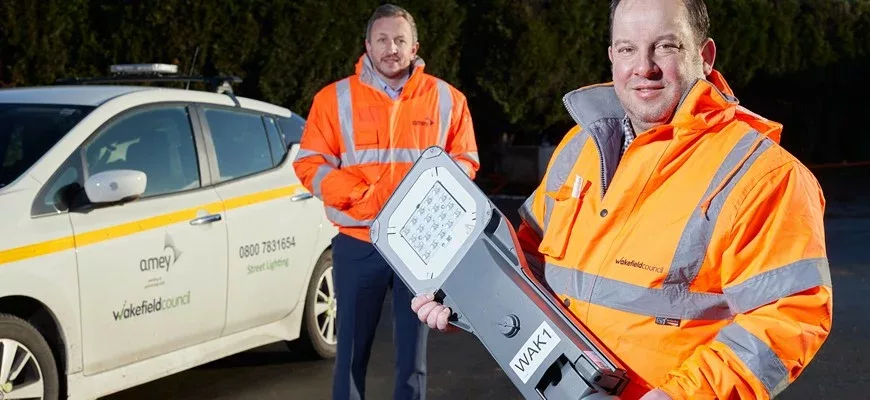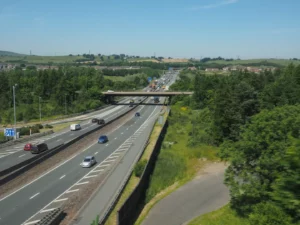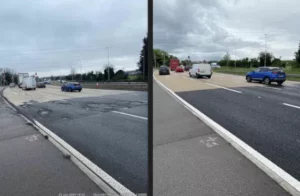Amey has won a contract to install energy efficient LED street lighting for Wakefield Council, as the council upgrades all existing residential street lighting, over the next three years.
Over 43,000 streetlights across the district will be upgraded to LED lights, which will reduce the Council’s street lighting energy consumption by 65%. It is estimated that the project will reduce the Council’s carbon emissions by a minimum of 3,700 tonnes.
The lights will be controlled by a Central Management System. This technology uses the mobile communication network to send instructions to the lanterns as well as gather information regarding their current condition, meaning the system will automatically identify faults.
Cllr Matthew Morley, Wakefield Council’s Cabinet Member for Planning and Highways, said: “We have made an important pledge to become a carbon neutral organisation by 2030 and this project is a big part of our plans to do so.
“LED streetlights not only reduce energy consumption and lower carbon emissions but they also reduce operational costs, light pollution and automatically identify the majority of faults so that they are dealt with quickly and more efficiently and provide better quality lighting overall.
“This is a really exciting project which will benefit our residents in lots of different ways.”
Nick Powell, Street Lighting Account Director at Amey, added: “We’ve worked with Wakefield Council since 2004 to improve and maintain the street lighting across the district, performing inspections, replacing lamps and undertaking electrical testing and cleaning. The latest, exciting development of our partnership will see us continue to improve the street lighting service for local residents and communities for future generations. We’re looking forward to supporting the Council to upgrade the current street lighting to energy efficient LEDs and deliver Wakefield’s climate change pledge.”
The works will be funded through an ‘Invest to Save’ approach, with £19.4m being spent on the new technology, which is forecast to pay back in 13 years.

























